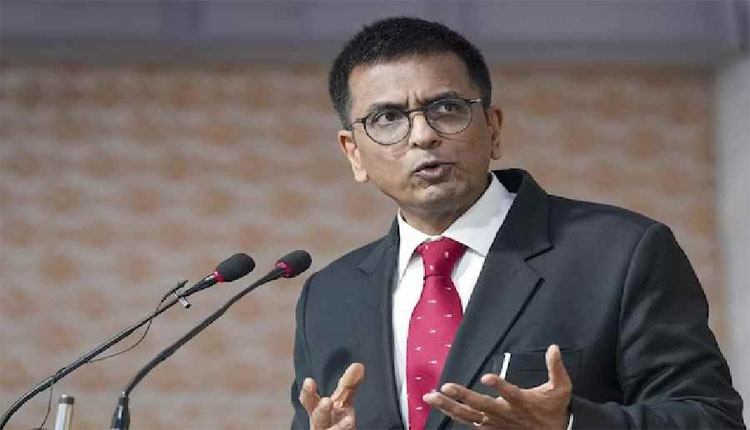New Delhi: Fresh controversy has erupted over the 2019 Supreme Court verdict on the Ayodhya Ram Mandir-Babri Masjid dispute, with former Chief Justice of India (CJI) D Y Chandrachud’s recent remarks igniting calls for a curative petition that could reopen the settled case.
In an interview with journalist Sreenivasan Jain, Chandrachud described the 16th-century construction of the Babri Masjid as a “fundamental act of desecration” of a prior temple — a statement that starkly contrasts with the landmark judgement he helped deliver.
The five-judge bench, led by then-CJI Ranjan Gogoi and including Justices S A Bobde, Chandrachud, Ashok Bhushan, and S Abdul Nazeer, had ruled that Muslims failed to prove exclusive possession of the site but found no evidence the mosque was built after demolishing a temple. The verdict awarded the disputed land to Hindus for the Ram Mandir while allotting an alternative site for a mosque.
Legal scholar Professor G Mohan Gopal has seized on the discrepancy, arguing it provides grounds for a curative petition. “Chandrachud’s observation contradicts the judgement, undermining judicial trust,” Gopal said at a seminar in Kerala, adding that the former CJI should have recused himself if holding such views. He urged revisiting the ruling to “inspire confidence, especially among those who lost.”
Facing backlash, Chandrachud clarified at the India Today Conclave in Mumbai that his words were “taken out of context” on social media. “The Ayodhya decision rested on evidence and legal principles, not faith,” he emphasised, recounting his inclusive practices like reciting the Navkar Mantra daily.
As the grand Ram Mandir nears completion, this row threatens to revive old wounds, testing the finality of a verdict meant to heal a nation’s divides.



Comments are closed.